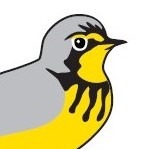By Karen Devitt, BC Program Coordinator, Bird Studies Canada

Photo: kcxd
At the beginning of April, Bird Studies Canada staff attended the 30th Salish Sea Ecosystem Conference in Seattle, Washington. We thank the Swinomonish Tribal Community and the Coast Salish people for welcoming us, allowing us to gather on their traditional territory, and sharing their knowledge and culture throughout the conference proceedings.
The purpose of this conference is to discuss and learn about the state of the Salish Sea and bring First Nations, scientists, resource managers, policy makers, educators, and students together to work toward protecting and restoring the region. Sessions at this year’s conference explored a range of topics, including habitat restoration and protection, toxicology, transboundary management and policy, communication, and ecosystem services and human well-being.
Bird Studies Canada staff helped develop a special session focused on the Fraser River Estuary in British Columbia. The session’s aim was to explore social, biophysical, and policy work in the region to develop conservation, protection, and recovery strategies for the estuary. Bird Studies Canada presented on the trends of coastal birds in the region and how Citizen Science data collected by the BC Coastal Waterbird Survey are connecting citizens to decision making and conservation planning in the region.
During this session, we also heard from Marine Environmental Observation, Prediction and Response Network (MEOPAR) Postdoctoral Fellow Laura Kehoe. Her research has focused on prioritizing management actions in the Fraser River estuary and ways of ranking management actions based on cost, ecological benefits, and probability of success.
Some of the management actions already underway were also presented, including research on juvenile Chinook salmon by Raincoast Conservation Foundation and marsh recession in the estuary by the Department of Forestry, Lands, Natural Resource Operations and Rural Development. Chief Dalton Silver of the Sema:th First Nation explained how holistic governance and management of natural ecosystems is essential for social, food, and cultural securities for First Nations in the Lower Fraser. Deborah Carleson from West Coast Environmental Law echoed this call and presented suggestions on how we can restructure governance in the region to focus on ecosystem recovery and reconciliation.
The session on the Fraser River estuary highlighted the need to build public support for this wildlife and cultural hotspot on the brink, through effective reconciliation, communication, funding mechanisms, research, and restoration. We encourage people in the region to participate directly in the conservation planning process by ensuring that decision makers are incorporating the best available science from Indigenous knowledge holders and community knowledge from sources like the BC Coastal Waterbird Survey.

